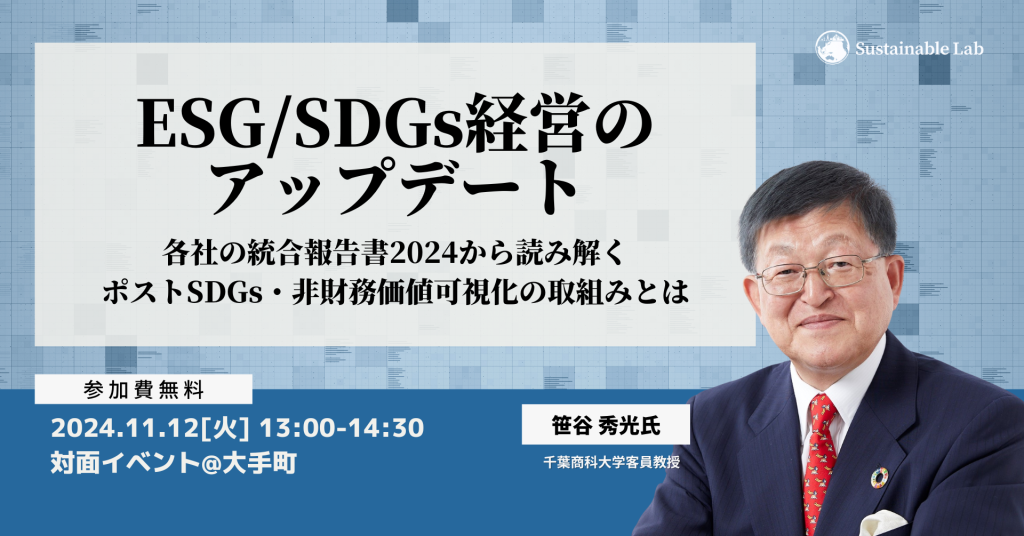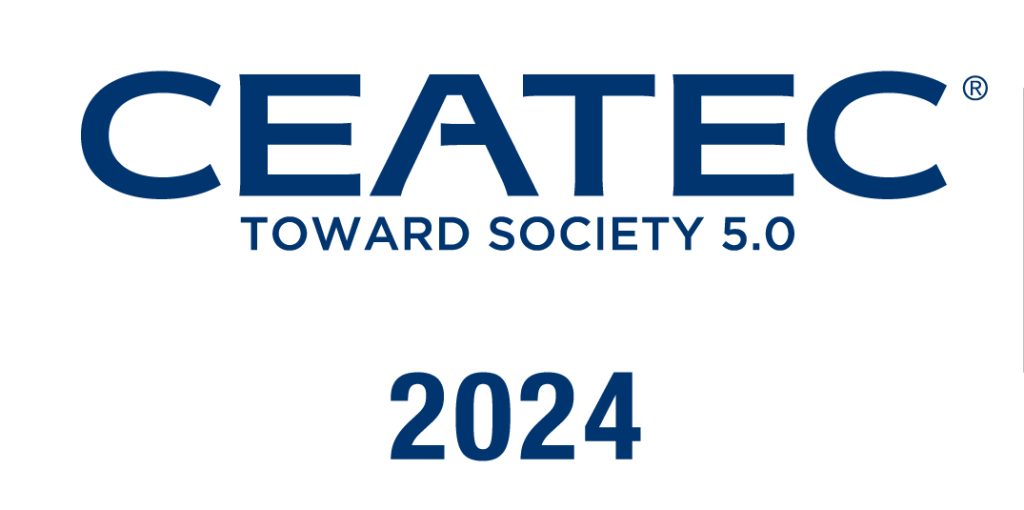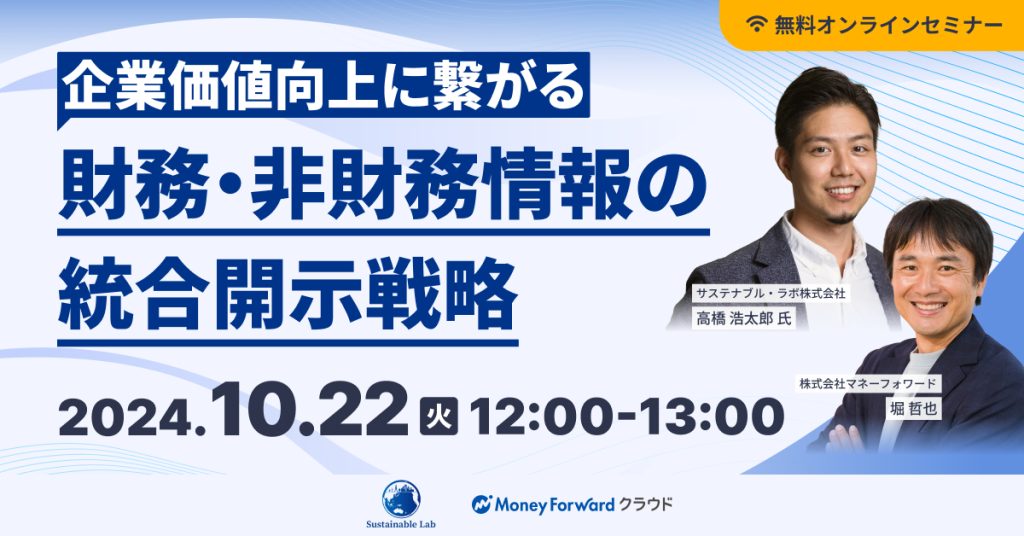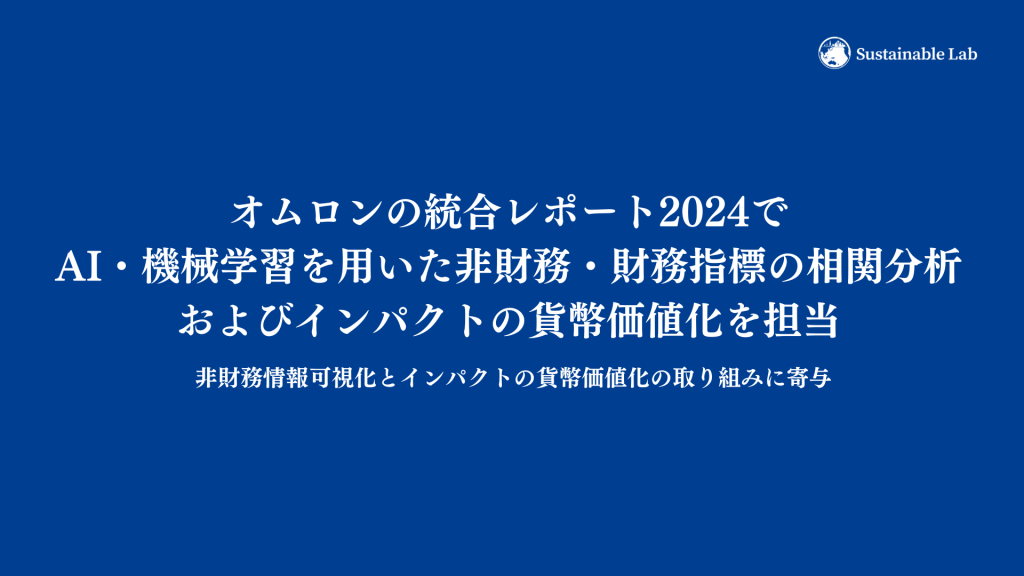【8/14〜8/21】のESG関連ニュースをまとめてお届けします。
Reported by Ingo Tietböhl(Director of ESG Research and Solutions)
Summary in English is in the second half.
【英TESCO】自然資本関連におけるサプライチェーンの野心的な目標を設定。森林伐採ゼロのサプライチェーンを目指す
(2023/8/14)
- 小売大手である同社は2032年までに、エネルギーや産業源によるScope 3排出を2019年比で55%削減、さらに森林や農業に関連するFLAG排出も39%削減を目指す。特筆すべきは、その炭素フットプリントの90%が価値連鎖に由来すること。これは食品セクター全体に広がる課題で、サプライチェーンが大きな排出源を抱えている現状を反映している。同社のアプローチには、2025年までにサプライチェーンでの森林伐採をゼロにする取り組みや、2023年までにサプライヤーによるネットゼロへのコミットメントを促すことが含まれている。
- 同社は大胆な目標設定により気候変動対策を牽引。価値連鎖全体での排出削減を重視し、2025年までに森林伐採を促す材料が使われていない商品開発においてリーダーシップを目指す。そのコミットメントは科学に基づく目標(SBTi)によって裏付けられ、小売業界におけるESGの先駆者としての地位を確固たるものとしている。
- 同社の画期的な戦略には、サプライヤーパートナーシップと革新がカギ。SBTiの承認がその先駆的な役割を裏付け、野心的なロードマップが同社の持続可能な未来をリードする姿勢を強調している。
【欧州委員会】輸入品の炭素価格調整策(CBAM)導入で新ルール発表。鉄鋼、セメント、アルミニウムなどの分野から適用
(2023/8/17)
- 欧州委員会が、輸入品に対する新たな炭素税であるCBAMのための報告ルールを発表しました。EU内外の生産者の炭素価格の均等化が狙いであると考えられる。輸入業者は2024年1月末までに埋蔵排出量データを報告し、2025年末までの移行期間を通じて適用。
- 新たなCBAMの目的は、「炭素透過」と呼ばれる環境規制の緩い国での排出の濃縮製品の生産を防ぐこと。EU内外の生産者の炭素価格差を縮小するため、EU製品と輸入品の価格差を均等化。輸入業者はCBAM証明書を購入し、差額を埋める必要。
- 新ルールでは、輸入業者は埋蔵排出量を報告し、原産国や生産工場、主な排出源の座標などを提供。輸入品の直接排出(製造プロセスからのCO2e)と間接排出(電力消費など)も報告を義務化。最初は鉄鋼、セメント、アルミニウムなどの分野に適用され、訓練資料やITツールの開発も進行中。
「一般社団法人サステナビリティデータ標準化機構」が設立。金融庁、全国銀行協会等の官公庁・業界団体、全国の地域金融機関を含む48の銀行が賛同
(2023/8/21)
- 中小中堅企業や非上場企業のサステナビリティ情報開示の基準を整備しデータ開示の浸透・促進を目指す「一般社団法人サステナビリティデータ標準化機構(SDSC)」が誕生。本機構の設立趣旨には、金融庁、全国銀行協会等の官公庁・業界団体に加えて、地域金融機関を含む48の銀行が賛同。金融機関においては国内で営業する銀行のうち約40%の賛同を確認。これは、預金残高ベースで 88%シェア、貸出金残高ベースで 94%シェアとなる。
- 従来、大企業向けの基準は整備されていたが、中小企業や非上場企業の基準が不透明であり、更には、基準の曖昧さや情報統一の難しさが高い壁となっていた。本機構は、中小企業も統一基準で情報開示を可能にすることを目指す。これにより、企業活動やサプライチェーン全体でのサステナビリティが進展し、競争力向上に寄与する可能性。
- なお、同機構の活動内容は、開示基準の標準化、企業内での情報整備・開示促進、グローバルデータとの整合性・互換性の確保、セミナー開催。日本企業全体でサステナビリティ情報を進化させ、経済成長とともに社会・環境貢献を目指す。
【大成建設】施工時のCO2排出実質ゼロへ、 建設業界の脱炭素への道を検証
(2023/8/21)
- 大成建設は、呑川合流改善貯留施設立坑設置工事(東京都大田区)において、施工時のCO2排出量を実質ゼロにする技術実証を10月より開始。
- 既に福岡空港事務所新庁舎工事で国内初の実現に成功。今回は建設重機稼働率の高い土木工事にフォーカス。燃料電動化や省エネ機器採用など、多角的アプローチで排出量削減。2050年環境目標「TAISEI Green Target 2050」の一環とし、環境に配慮した建設への道を切り拓く。
- 実証結果をもとに、CO2排出ゼロの建設を推進。大成建設のCO2排出ゼロ実現は、建設業界において持続可能性と技術革新の模範となり、脱炭素化への取り組みが拡大する契機となる。
「Gomez ESGサイトランキング2023」発表。オンラインにおけるESG情報の発信、および情報の多様化が加速
(2023/8/21)
- ノミネート企業182社より伊藤忠商事がESG領域での総合第1位獲得し、3年連続でトップとなった。調査は4回目の実施で、5つのカテゴリで包括的な開示が増加傾向にある。また、気候変動とTCFDガイドラインに焦点を当て、サステナビリティメッセージと透明性に秀でた企業が上位に急上昇した模様。
- 182社のうち42.9%の企業が具体的な対策や指標を示して重要課題(マテリアリティ)に取り組む姿勢を示し、83.5%が自社のマテリアリティ特定プロセスを詳細に説明。加えて、40.1%が価値創造ストーリーを提供。
- ガバナンスとサステナビリティ全般における透明性の急激な向上が顕著。スキルマトリックス、取締役の報酬プロセス、サイバーセキュリティ対策が注目されている。59.9%の企業がスキルマトリックスを詳細に記載し、68.7%が役員報酬の決定方法を開示。
A summary of ESG-related news [14th – 21st August].
Reported by Ingo Tietböhl(Director of ESG Research and Solutions)
【TESCO (UK)】 Sets Challenging Supply Chain Natural Capital-Related Targets.
(Aug 14, 2023)
- Tesco, a global retail giant, unveils its aggressive sustainability targets. By 2032, it aims to cut Scope 3 emissions by 55% and FLAG emissions by 39% from 2019 levels. Notably, 90% of its carbon footprint stems from its value chain. This mirrors a broader challenge in the food sector, where supply chains drive significant emissions. Tesco’s approach includes eliminating deforestation in its supply chain by 2025 and encouraging net-zero commitments from suppliers by 2023.
- The company spearheads climate action by setting audacious targets. Focusing on emissions reduction across its value chain, the company intends to lead in deforestation-free commodities by 2025. Their commitment is validated by the Science Based Targets initiative (SBTi), cementing their position as an ESG trailblazer in the retail realm.
- Tesco aiming for a groundbreaking 55% reduction in Scope 3 and 39% in FLAG emissions by 2032, Tesco’s strategy hinges on collaborative supplier partnerships and innovation. SBTi validation underscores their pioneering role, while the ambitious roadmap underscores Tesco’s leadership in shaping a greener future.
【The European Commission】Introduced Reporting Regulations for the Carbon Border Adjustment Mechanism (CBAM), the EU’s Fresh Carbon Tax on Imported Goods, Starting with Steel, Aluminium and Cement.
(Aug 17, 2023)
- The regulations aims to level the carbon pricing playing field between producers within and outside the EU. Importers are to report embedded emissions data by January 2024 and abide by the rules throughout the transitional phase until the end of 2025.
- CBAM’s primary objective is to combat ‘carbon leakage’—the production of emission-intensive goods in nations with lax environmental regulations. To bridge the carbon pricing gap between producers within and outside the EU, CBAM equalizes prices of EU products and imports. Importers must purchase CBAM certificates to offset the difference.
- Under the new rules, importers are mandated to disclose embedded emissions, including the country of origin, production facility, and main emission sources’ coordinates. Direct emissions (CO2e from production processes) and indirect emissions (like electricity consumption) must also be reported. Initially applied to sectors like steel, cement, and aluminum, training materials and IT tools development are underway.
“Sustainability Data Standardization Consortium”in Japan Established. Endorsed by 48 Banks, Including the Financial Services Agency, the Japanese Bankers Association, and Other Government and Industry Organizations, as well as Regional Financial Institutions Nationwide.
(Aug 21, 2023)
- In a significant move towards promoting sustainability, in Japan the “Sustainability Data Standardization Consortium” has been introduced. This initiative, endorsed by key players including the Financial Services Agency, the Japanese Bankers Association, and various government bodies, has garnered support from 48 banks, both national and regional. A significant number of financial institutions have already shown support with approximately 40% of institutions operating(88% share of total deposits and 94% share of loans outstanding) within Japan.
- The consortium’s main goal is to create a standardized framework for disclosing sustainability information by small and midsize businesses. In collaboration with financial institutions and related enterprises, this effort seeks to foster sustainable practices among smaller companies. Previously, while standards existed for large corporations, the lack of clarity for SMEs posed challenges. This new consortium addresses this gap, enabling SMEs to disclose information under unified guidelines.
- With the introduction of these standards, not only will transparency improve, but sustainability practices across supply chains could see a boost, ultimately enhancing overall competitiveness. The consortium’s efforts encompass establishing consistent disclosure standards, promoting information development within companies, ensuring alignment with global data, and hosting educational seminars. Through these initiatives, the consortium aspires to drive sustainability throughout Japan’s corporate landscape, shaping a more responsible future.
【Taisei Corporation】 Aiming to Achieve CO2 Zero Emissions During Construction Activities.
(Aug 21, 2023)
- The company initiated technology trials in October for its project involving the installation of flood control facilities at the Nomigawa River confluence. Notably, Taisei had previously achieved this feat domestically with the construction of the new Fukuoka Airport Office building.
- This time, the focus is on civil engineering projects with high construction machinery usage rates. Employing a multifaceted approach, including electrification of fuel systems and adoption of energy-efficient equipment, the company aims to significantly curtail emissions. This effort aligns with their 2050 environmental target, “TAISEI Green Target 2050,” and underscores their commitment to environmentally-conscious construction practices.
- The outcomes of these technological trials will serve as a catalyst to propel zero-CO2-emission construction initiatives forward. Taisei’s achievement in realizing CO2 emission neutrality stands as an exemplary model of sustainability and technological innovation within the construction industry. This stride sets the stage for a broader movement toward decarbonization, catalyzing a larger commitment to sustainable practices.
“Gomez ESG Website Ranking 2023” Revealed: Accelerating ESG Information Dissemination and Diversification Online.
(Aug 21, 2023)
- In the latest iteration of the ranking, Itochu Corporation secured the top spot in the ESG domain, marking its third consecutive year as the frontrunner among the 182 nominated companies. The fourth edition of the survey reveals a growing trend towards comprehensive disclosures spanning five categories. Notably, a surge in companies emphasizing climate change and TCFD guidelines has propelled those excelling in sustainability messaging and transparency to higher rankings.
- Among the surveyed firms, 42.9% are showcasing tangible measures and indicators, demonstrating their commitment to addressing materiality concerns. Impressively, 83.5% provide detailed explanations of their materiality identification process, with 40.1% presenting value creation stories. Noteworthy improvements in governance and sustainability transparency have come to the forefront, particularly in areas like skill matrices, director compensation processes, and cybersecurity measures. A significant 59.9% of companies detail their skill matrices, while 68.7% disclose their methods for determining executive compensation.






